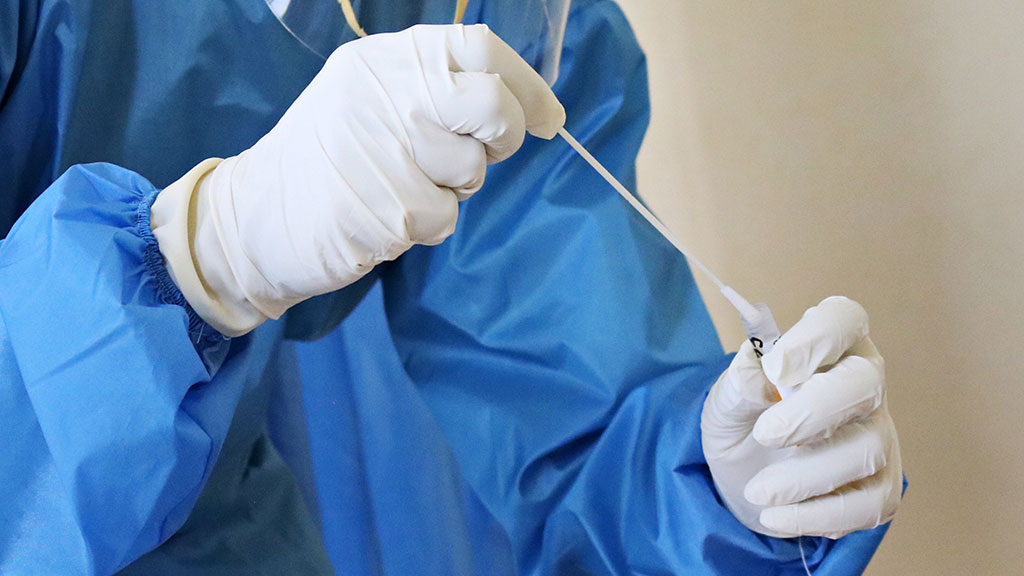Less women in scientific production, a reality of the COVID-19 lockdown
A study has shown that, from July to October 2020, scientific production was more linked to menWomen, on the other hand, developed a greater number of scientific activities perceived as altruistic

In response to the COVID-19 pandemic, governments around the world implemented a variety of containment measures, including lockdown and mobility restrictions. These measures succeeded in slowing the progression of this disease, but they also had a social and economic impact, increasing inequalities, such as the gender gap. Wanting to quantify these differences between men and women in the field of biomedical research, the working group "Women in Science" of the Can Ruti Campus published in open access in the Frontiers in Psychology journal a study conducted jointly by the IrsiCaixa AIDS Research Institute, the Germans Trias i Pujol Research Institute, the Fight Infections Foundation, the Catalan Institute of Oncology, the Centre for Epidemiological Studies on Sexually Transmitted Infections and AIDS of Catalonia, the Hospital Germans Trias i Pujol, the Barcelona Institute for Global Health and the Universitat Oberta de Catalunya (UOC). The article highlights how, during the pandemic, activities related to scientific production have been mainly carried out by men.
The study –with José Antonio Muñoz Moreno, course instructor of the Faculty of Psychology and Educational Sciences, and Jörg Müller, researcher of the Gender and ICT (GenTIC) group, of the Internet Interdisciplinary Institute (IN3)– involved the participation of 147 people from the Can Ruti Campus –80% women, 20% men– and was carried out by conducting surveys during the months of July to October 2020. Based on the results obtained, the working group states the need to reverse this situation by increasing female representation in scientific production and highlighting the value of other scientific tasks that are less recognized and performed mainly by women.
Less scientific production and more outreach activities for women
Through the results of the surveys, the study analyses the scientific production, unpaid academic activities and mental health of 147 scientists on campus.
"The results show that, during the months from July to October 2020, when the mobility restriction measures were still in force, female scientists on campus submitted a lower number of articles to scientific journals, applied for fewer grants and appeared less as lead authors of published articles compared to men," explain the researchers.
"On the other hand, the study shows that, in this period of time, unrecognized academic activities, such as educational outreach and conducting reviews, are tasks that have been more linked to women than to men," says the research team.
If the results are compared between men and women with dependents in their care, the differences are accentuated in the case of participation in outreach activities and the feeling of sadness in relation to the gender bias itself.
Enhancing the value of tasks not directly related to scientific production
"The differences observed in the study should be used by institutions to offer measures to reverse this bias. The working committee is committed to promoting the active participation of women in tasks related to the development of their scientific careers", say the scientists involved in the study.
The group also defends the need to introduce changes in the current research evaluation system so that tasks perceived as altruistic –such as educational outreach activities and article review– are equally valid evaluation parameters as those related to scientific production.
Related paper
Izquierdo-Useros, N., Marin Lopez, M. A., Monguió-Tortajada, M., Muñoz-Moreno, J. A., Agusti Benito, C., Morón-López, S., Evans, H., Gualdrón-López, M., Müller, J., & Prado, J. G. (2022) Impact of COVID-19 lockdown in a biomedical research campus: A gender perspective analysis. Frontiers in Psychology, 13, 906072. https://doi.org/10.3389/fpsyg.2022.906072
UOC R&I
The UOC's research and innovation (R&I) is helping overcome pressing challenges faced by global societies in the 21st century, by studying interactions between technology and human & social sciences with a specific focus on the network society, e-learning and e-health.
The UOC's research is conducted by over 500 researchers and 51 research groups distributed between the university's seven faculties, the E-learning Research programme, and two research centres: the Internet Interdisciplinary Institute (IN3) and the eHealth Center (eHC).
The University also cultivates online learning innovations at its eLearning Innovation Center (eLinC), as well as UOC community entrepreneurship and knowledge transfer via the Hubbik platform.
The United Nations' 2030 Agenda for Sustainable Development and open knowledge serve as strategic pillars for the UOC's teaching, research and innovation. More information: research.uoc.edu
Experts UOC
Press contact
-
Editorial department
